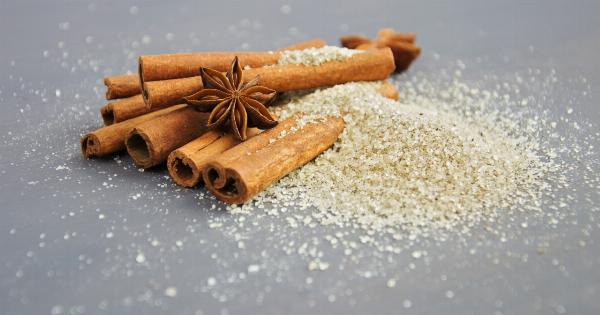Colon cancer is one of the most common forms of cancer, affecting millions of people worldwide. It is a type of cancer that starts in the colon or rectum, and its development is influenced by various factors, including genetics, lifestyle, and diet.
While there is no magic cure or prevention method for colon cancer, several studies have suggested that coffee consumption may have a protective effect against this disease.
The role of coffee in cancer prevention
Coffee is one of the most widely consumed beverages globally, and its health effects have been the subject of extensive research.
The protective effect of coffee against various types of cancer, including colon cancer, has been investigated in numerous epidemiological studies and meta-analyses. Although the exact mechanisms behind this association are not fully understood, scientists have proposed several theories.
1. Antioxidant activity
Coffee is rich in antioxidants, which are compounds that can protect cells from damage caused by free radicals.
Free radicals are highly reactive molecules that can damage DNA and other cellular structures, potentially leading to the development of cancer. Antioxidants help neutralize these harmful molecules and reduce the risk of their damaging effects on the colon cells.
2. Anti-inflammatory effects
Chronic inflammation is associated with an increased risk of cancer development. Coffee contains bioactive compounds that have anti-inflammatory properties, such as chlorogenic acid and caffeic acid.
These compounds can reduce inflammation in the body, including in the colon, which may help prevent the initiation and progression of colon cancer.
3. Modulation of gut microbiota
The gut microbiota plays a crucial role in maintaining gut health and influencing various aspects of our well-being, including our immune system and metabolism.
Recent research has suggested that coffee consumption can affect the composition of gut microbiota, promoting the growth of beneficial bacteria. A healthy and diverse gut microbiota is believed to have a protective effect against colon cancer.
4. Regulation of insulin and glucose metabolism
Coffee contains compounds that may help regulate insulin and glucose metabolism, such as chlorogenic acid and trigonelline.
These compounds have been found to improve insulin sensitivity and reduce the risk of type 2 diabetes, which is a risk factor for colon cancer. By promoting healthy glucose metabolism, coffee consumption may indirectly contribute to a lower risk of colon cancer.
5. Effect on bile acid metabolism
Bile acids are essential for proper digestion and nutrient absorption, but they can also play a role in promoting colorectal cancer development.
Research has suggested that coffee consumption can modify the metabolism of bile acids, potentially reducing their harmful effects and protecting against colon cancer.
Evidence from research studies
Several research studies have explored the association between coffee consumption and colon cancer risk. While individual studies may have limitations, looking at the overall body of evidence can provide more comprehensive insights.
1. Meta-analysis of observational studies
A meta-analysis published in the International Journal of Cancer in 2019 analyzed data from 26 observational studies on coffee consumption and colorectal cancer risk.
The analysis found that higher coffee intake was associated with a reduced risk of colorectal cancer, with the greatest risk reduction observed for colon cancer. The research suggests that regular coffee consumption may have a protective effect against colorectal cancer.
2. Nurses’ Health Study
The Nurses’ Health Study, which followed more than 100,000 women for over 20 years, found that individuals who consumed more than four cups of coffee per day had a significantly lower risk of colorectal cancer compared to non-coffee drinkers.
The study also observed a dose-response relationship, indicating that higher coffee consumption was associated with a greater risk reduction.
3. European Prospective Investigation into Cancer and Nutrition
The European Prospective Investigation into Cancer and Nutrition (EPIC) is one of the largest ongoing studies on diet and cancer.
A subset of this study, involving over 500,000 participants, investigated the relationship between coffee consumption and colorectal cancer risk. The findings showed that participants who drank more than four cups of coffee per day had a lower risk of colorectal cancer compared to those who consumed less coffee.
Practical recommendations
While the research suggests a potential protective effect of coffee against colon cancer, it is important to note that excessive consumption of coffee may have adverse effects on health, such as increased anxiety, disrupted sleep patterns, or digestive issues. Therefore, moderation is key.
Based on the available evidence, it is recommended to consume coffee in moderate amounts as part of a balanced diet and healthy lifestyle.
The optimal amount of coffee intake for colon cancer prevention is not well-defined, but consuming 2-3 cups per day is generally considered a moderate and safe level of consumption for most individuals.
Conclusion
Emerging evidence indicates that coffee consumption may play a role in preventing colon cancer.
The protective effects of coffee against colon cancer can be attributed to its antioxidant activity, anti-inflammatory properties, modulation of gut microbiota, regulation of insulin and glucose metabolism, and influence on bile acid metabolism. However, further research is needed to fully understand the underlying mechanisms and establish more specific recommendations.





























